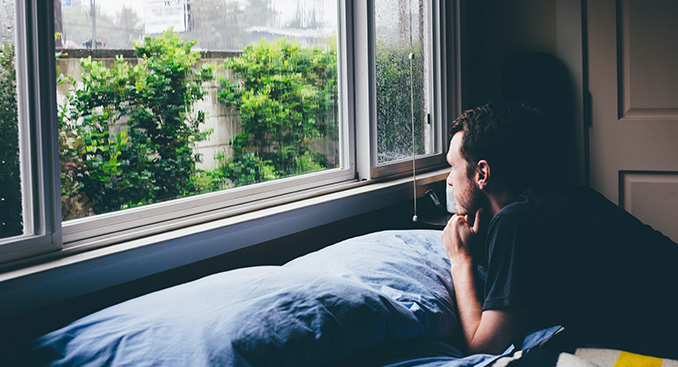TriHealth is notifying individuals whose information was involved in a recent third-party data security incident. Click here for more information. Click here for additional information on the recent Datavant Breach.
Staying Emotionally Healthy During COVID-19 and Quarantine

The uncertainty related to the COVID-19 coronavirus and activity restrictions are resulting in stress, anxiety and depression for many people.
“Anxiety is a natural reaction to high-stress situations,” says Margaret Lemp, PsyD, a clinical psychologist and the behavioral health consultant lead at TriHealth. “The stress is unusually high due to the uncertainty and we are being constantly inundated with new information. It can be hard to put the mind at ease, but it’s important to develop coping strategies to limit the effect of anxiety on your health.”
Dr. Lemp says stress and anxiety can cause disruption of sleep and lead to poor diet, as well as symptoms which mimic other conditions such as shortness of breath, shakiness, increased heart rate and in extreme cases, chest pain.
To help you manage your stress and feel better during quarantine, Dr. Lemp suggests the following strategies:
- Stay connected to others - Face time or call relatives and friends, play games, schedule family activities, write letters, participate in online spiritual services and send cards to elderly or those who are isolated.
- Be physically active - Walk outdoors in open spaces, do yoga, dance, explore workouts on YouTube.
- Monitor news intake - Choose one trusted news source and limit checking it to one to two times per day. Also, limit exposure to social media.
- Keep up your routine - Continue your normal day to the best of your abilities. Wake up, get dressed, eat breakfast, do work/school work, take a break and go outside.
- Actively manage your thoughts - Ask "What can I do today/in this moment to manage how I am feeling?”
- Practice mindfulness to stay present - Do breathing exercises, meditate, journal, cook, or draw.
- Stay positive - Write down things you are grateful for or that are going well. Chose activities that are pleasant and improve your mood.
Dr. Lemp reminds that sometimes coping strategies are not enough and warns against letting your anxiety impact your health long term.
“If you feel like you need additional support, don’t wait too long to ask for help,” she says. “The best place to start is by asking your doctor.”
